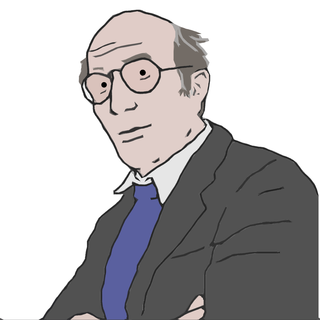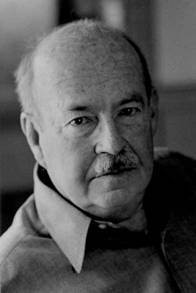Neofunctionalism is the perspective that all integration is the result of past integration. The term may also be used to literally describe a social theory that is "post" traditional structural functionalism. Whereas theorists such as Jeffrey C. Alexander openly appropriated the term, [1] others, such as the post-structuralist philosopher Michel Foucault, have been categorized as contemporary functionalists by their critics. [2]
Functionalism in international relations theory was developed by David Mitrany. International relations neofunctionalism was developed by Ernst Haas in the 1960s to give a formal explanation to the work of Jean Monnet (1888–1979).
In sociology, neofunctionalism represents a revival of the thought of Talcott Parsons by Jeffrey C. Alexander, who sees neofunctionalism as having five central tendencies:
While Parsons consistently viewed actors as analytical concepts, Alexander defines action as the movement of concrete, living, breathing persons as they make their way through time and space. In addition he argues that every action contains a dimension of free will, by which he is expanding functionalism to include some of the concerns of symbolic interactionism. [3]
Neil J. Smelser sets out to establish the concept of ambivalence as an essential element of understanding individual behaviour and social institutions. His approach, based on Sigmund Freud's theory, takes intrapsychic processes rather than roles at the starting point. He sees ambivalence (to hold opposing affective orientations toward the same person object or symbol) as most applicable in situations where persons are dependent on one another. The common element of dependency is in his opinion that freedom to leave is restricted because it is costly either politically, ideologically or emotionally. Thus dependence entails entrapment. Following his views on ambivalence, Smelser argues that attitude surveys should be seen as distorted structures of reality that minimize and delegitimizes ambiguity and ambivalence.
Niklas Luhmann sees Parsons' theory as missing the concepts of self-reference and complexity. Self-reference is a condition for the efficient functioning of systems. It means that a system is able to observe itself, can reflect on itself and can make decisions as a result of this reflection. In Luhmann's theory, the chief task performed by social systems is to reduce complexity, which brings more choices and more possibilities; it takes more noes to reach a "yes". Religion or functional equivalents in modern society can provide actors with shared standards of action accepted on faith, which allow complex sets of interactions to proceed in a world that would otherwise be chaotic and incomprehensible.
Furthermore Luhmann makes the distinction between risk, a potential harm threatening an individual that is based on a decision made by the individual, and danger, a potential harm to which an individual is passively exposed. The critical difference between the decision maker and the people affected by the decision is that what is a risk for one is a danger for the other. Whereas people in primitive societies were threatened primarily by dangers, people in modern society are threatened primarily by risks caused by our dependency on the decision makers.

Jürgen Habermas is a German philosopher and sociologist in the tradition of critical theory and pragmatism. His work addresses communicative rationality and the public sphere.

Niklas Luhmann was a German sociologist, philosopher of social science, and a prominent thinker in systems theory, who is considered one of the most important social theorists of the 20th century.

Talcott Parsons was an American sociologist of the classical tradition, best known for his social action theory and structural functionalism. Parsons is considered one of the most influential figures in sociology in the 20th century. After earning a PhD in economics, he served on the faculty at Harvard University from 1927 to 1929. In 1930, he was among the first professors in its new sociology department. Later, he was instrumental in the establishment of the Department of Social Relations at Harvard.
Social theories are analytical frameworks, or paradigms, that are used to study and interpret social phenomena. A tool used by social scientists, social theories relate to historical debates over the validity and reliability of different methodologies, the primacy of either structure or agency, as well as the relationship between contingency and necessity. Social theory in an informal nature, or authorship based outside of academic social and political science, may be referred to as "social criticism" or "social commentary", or "cultural criticism" and may be associated both with formal cultural and literary scholarship, as well as other non-academic or journalistic forms of writing.

Structural functionalism, or simply functionalism, is "a framework for building theory that sees society as a complex system whose parts work together to promote solidarity and stability".

A cultural system is the interaction of different elements in culture. While a cultural system is very different from a social system, sometimes both systems together are referred to as the sociocultural system.
Verstehen, in the context of German philosophy and social sciences in general, has been used since the late 19th century – in English as in German – with the particular sense of the "interpretive or participatory" examination of social phenomena. The term is closely associated with the work of the German sociologist, Max Weber, whose antipositivism established an alternative to prior sociological positivism and economic determinism, rooted in the analysis of social action. In anthropology, verstehen has come to mean a systematic interpretive process in which an outside observer of a culture attempts to relate to it and understand others.

In social science, antipositivism is a theoretical stance that proposes that the social realm cannot be studied with the scientific method of investigation utilized within the natural sciences, and that investigation of the social realm requires a different epistemology. Fundamental to that antipositivist epistemology is the belief that the concepts and language that researchers use in their research shape their perceptions of the social world they are investigating, studying, and defining.
The philosophy of social science is the study of the logic, methods, and foundations of social sciences such as psychology, economics, political science and sociology. Philosophers of social science are concerned with the differences and similarities between the social and the natural sciences, causal relationships between social phenomena, the possible existence of social laws, and the ontological significance of structure and agency.
In sociology, rationalization is the replacement of traditions, values, and emotions as motivators for behavior in society with concepts based on rationality and reason. For example, the implementation of bureaucracies in government is a kind of rationalization, as is the construction of high-efficiency living spaces in architecture and urban planning. A potential reason as to why rationalization of a culture may take place in the modern era is the process of globalization. Countries are becoming increasingly interlinked, and with the rise of technology, it is easier for countries to influence each other through social networking, the media and politics. An example of rationalization in place would be the case of witch doctors in certain parts of Africa. Whilst many locals view them as an important part of their culture and traditions, development initiatives and aid workers have tried to rationalize the practice in order to educate the local people in modern medicine and practice.

The Theory of Communicative Action is a two-volume 1981 book by the philosopher Jürgen Habermas, in which the author continues his project of finding a way to ground "the social sciences in a theory of language", which had been set out in On the Logic of the Social Sciences (1967). The two volumes are Reason and the Rationalization of Society, in which Habermas establishes a concept of communicative rationality, and Lifeworld and System: A Critique of Functionalist Reason, in which Habermas creates the two level concept of society and lays out the critical theory for modernity.

The sociology of law is often described as a sub-discipline of sociology or an interdisciplinary approach within legal studies. Some see sociology of law as belonging "necessarily" to the field of sociology, but others tend to consider it a field of research caught up between the disciplines of law and sociology. Still others regard it neither a subdiscipline of sociology nor a branch of legal studies but as a field of research on its own right within the broader social science tradition. Accordingly, it may be described without reference to mainstream sociology as "the systematic, theoretically grounded, empirical study of law as a set of social practices or as an aspect or field of social experience". It has been seen as treating law and justice as fundamental institutions of the basic structure of society mediating "between political and economic interests, between culture and the normative order of society, establishing and maintaining interdependence, and constituting themselves as sources of consensus, coercion and social control".

Sociology of terrorism is an emerging field in sociology seeking to understand terrorism as a social phenomenon and how individuals as well as states respond to such events. It is not to be confused with critical terrorism studies which sometimes overlaps with the psychology of terrorism.
In system theory. "differentiation" is the replication of subsystems in a modern society to increase the complexity of a society. Each subsystem can make different connections with other subsystems, and this leads to more variation within the system in order to respond to variation in the environment.

Sociology is a social science that focuses on society, human social behaviour, patterns of social relationships, social interaction, and aspects of culture associated with everyday life. It uses various methods of empirical investigation and critical analysis to develop a body of knowledge about social order and social change. Sociology can also be defined as the general science of society. While some sociologists conduct research that may be applied directly to social policy and welfare, others focus primarily on refining the theoretical understanding of social processes. Subject matter can range from micro-level analyses of society to macro-level analyses.
Jeffrey Charles Alexander is an American sociologist, and one of the world's leading social theorists. He is the founding figure in the school of cultural sociology he refers to as the "strong program".

The Philosophical Discourse of Modernity: Twelve Lectures is a 1985 book by the philosopher Jürgen Habermas, in which the author reconstructs and deals in depth with a number of philosophical approaches to the critique of modern reason and the Enlightenment "project" since Georg Wilhelm Friedrich Hegel and Friedrich Nietzsche, including the work of 20th century philosophers Max Horkheimer, Theodor Adorno, Martin Heidegger, Michel Foucault, Jacques Derrida, Cornelius Castoriadis and Niklas Luhmann. The work is regarded as an important contribution to Frankfurt School critical theory. It has been characterized as a critical evaluation of the concept of world disclosure in modern philosophy.
Richard Münch is a German sociologist and, as of 2013, professor emeritus at the University of Bamberg. His primary field is sociological theory, in particular the work of Talcott Parsons. In the 1980s, he was instrumental in popularizing Parsons in Germany and defended his functionalist "grand theory" of action against competing approaches, such as rational choice and Niklas Luhmann's systems theory, which had been gaining ground since the 1970s.

Critical theory is an approach to social philosophy that focuses on reflective assessment and critique of society and culture in order to reveal and challenge power structures. With origins in sociology and literary criticism, it argues that social problems are influenced and created more by societal structures and cultural assumptions than by individual and psychological factors. Maintaining that ideology is the principal obstacle to human liberation, critical theory was established as a school of thought primarily by the Frankfurt School theoreticians Herbert Marcuse, Theodor Adorno, Walter Benjamin, Erich Fromm, and Max Horkheimer. Horkheimer described a theory as critical insofar as it seeks "to liberate human beings from the circumstances that enslave them."

Medical sociology is the sociological analysis of medical organizations and institutions; the production of knowledge and selection of methods, the actions and interactions of healthcare professionals, and the social or cultural effects of medical practice. The field commonly interacts with the sociology of knowledge, science and technology studies, and social epistemology. Medical sociologists are also interested in the qualitative experiences of patients, often working at the boundaries of public health, social work, demography and gerontology to explore phenomena at the intersection of the social and clinical sciences. Health disparities commonly relate to typical categories such as class and race. Objective sociological research findings quickly become a normative and political issue.